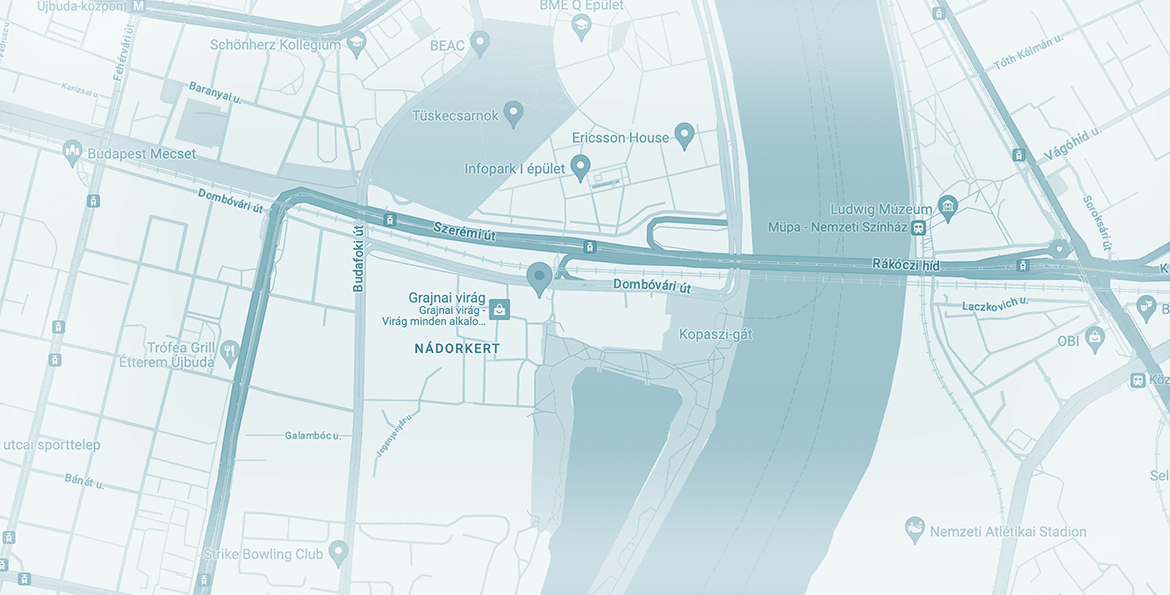
5 things to watch out for as a freelancer under flat-rate taxation
Are you a freelancer who pays taxes under flat-rate taxation in Hungary? Whether you are a KATA orphan or have just started your business, there are a bunch of rules you need to learn about deadlines, limits, and tax exemption. Read on to get an overview of the 5 most important things you must keep in mind.
Are you a freelancer who pays taxes under flat-rate taxation in Hungary? Whether you are a KATA orphan or have just started your business, there are a bunch of rules you need to learn about deadlines, limits, and tax exemption. Read on to get an overview of the 5 most important things you must keep in mind.
Please note: parts of this article are out of date (especially the limits on revenue). Click here for the latest information.
Flat-rate taxation in a nutshell
Not sure if this article is relevant for you? Click here for an overview of flat-rate taxation itself. To sum up: it is the most favorable tax regime currently available to KATA orphan and other freelancers with a relatively low yearly revenue, with the first HUF 1.2 million of income is tax exempt. It is especially advantageous for people who have a full-time job and do freelancing as a side business.
While working, issuing invoices, and paying taxes under this tax regime is pretty straightforward, there are a few issues you must watch out for.
1. Submit your 2258 every month until the 12th
Form 2258 is for calculating your monthly contributions based on your income in any given month. While it also includes a field where you must indicate your income, that will only function as the calculation base of the social security contribution and the social contribution tax you must pay. If you are a full-time freelancer, you must pay at least the minimum contribution each month.
The form must be submitted after the end of the month concerned, by the 12th day of the following month. If the form calculates any taxes payable, they also must be paid to the bank account number of the Tax Authority by the 12th. Read more here.
Please note: starting form 2023, contributions will need to be declared and paid quarterly instead of monthly. Learn more here.
2. Pay your personal income tax advance quarterly
While you must file for personal income tax only yearly, you must pay an advance on your personal income tax quarterly. There is no separate form to fill, just track your income and pay the 15 personal income tax on your quarterly income by the 12th day of the month following the quarter in question.
Remember, the first HUF 1.2 million of your income is tax exempt, which applies to the personal income tax as well. The HUF 1.2 million income equals HUF 2 million in revenues at a 40% expense rate, which is the most common expense rate applied.
Also, remember that the tax exempt portion of your revenue is tied to the current minimum wage, which is updated every year. To see the 2025 numbers, click here.
3. Cash accounting principle
If you are a freelancer, you normally book your income based on the cash accounting principle. This means that you book incoming payments not for the month when they were invoiced, but for the invoice when they were paid (but not later than 45 days after delivery). This matters most:
- for calculating your monthly contributions (see above);
- if you want to take full advantage of the yearly HUF 1.2 million tax-free income, since it will matter whether a sum was paid in December or January, so whether it counts towards to limit of this year or the next.
4. In issues concerning VAT, the cash accounting principle does not apply
While most freelancers whose yearly revenue is under HUF 12 million choose to be exempt from VAT, they must still consider how VAT is booked and calculated. If they do not want to lose their VAT exempt status, they must keep an eye on when they reach the VAT exempt revenue limit. In this sense, the cash accounting principle does not apply, and the delivery date on the invoice must be considered.
This is most relevant for deliveries around the end of the year. If you have invoiced an item in December, it will count towards the VAT exempt limit of that year, even if the invoice is paid only in January.
If you are a VAT subject, you should have a separate tracking sheet for VAT purposes and your other taxes and contributions.
UPDATE: As of January 1, 2025, the Hungarian revenue cap for VAT free operation is HUF 18 million. Read more here.
5. If you sell to EU buyers, you need an EU VAT number (and an accountant)
If you want to sell goods or services to buyers in other EU member states, you will need an EU VAT number even if you are exempt from VAT in Hungary. The regulation is complex, and rules will depend on whether
- your buyers are natural persons or legal persons;
- you are selling goods or services;
- your yearly revenue from selling goods to EU clients remains under EUR 10,000 (if not, VAT must be registered; learn more about the OSS scheme and the IOSS system here).
Since VAT and international trade is a complex issue, make sure to consult an accountant before your first sale.
Watch out for tax exempt limits and deadlines
While flat-rate taxation is a relatively simple tax regime available to freelancers, you must keep tabs on what you are doing, when invoices should be issued, when taxes and contributions must be paid, and when you are reaching certain thresholds.
Most important deadlines:
- 12th day of every month: declare and pay your social security contribution and social contribution tax with the help of Form 2258
- 12th day of the month following every quarter (so April, July, October, January): pay your personal income tax advance
Most important limits:
- HUF 1.2 million yearly income is tax exempt.
- Under HUF 12 million yearly revenue you can choose to remain VAT exempt.
- Under EUR 10,000 of yearly sales revenue from goods sold to other EU member states you can choose to remain VAT exempt. (Conditions may apply, consult your accountant.)
These limits have an immediate effect on how you pay taxes, how much you must pay (and whether you need to upgrade your accountancy). Online invoicing tools usually have plugins for tracking these, either for free or as a paid feature. Make sure to consult your provider and your accountant.
Helpers Finance at your service
Our team of English-speaking accountants offers accounting services to foreigners living, working, and doing business in Hungary. Our main focus is on small and medium sized companies, especially LLCs with non-Hungarian owners, but we also take other clients if our skills match their needs, including freelancers subject to flat-rate taxation. Should you need assistance, do not hesitate to contact us.
Was this article useful? Share it with your friends, and follow us on Facebook to never miss an update on accounting and finance related issues in Hungary.
Contact
Get in touch today
Monday - Friday
9am - 5pm CET
Helpers Finance Kft.
Budapart Gate
Dombóvári út 27
Budapest 1117, Hungary
If you’re visiting us, please use entrance A and come to the 2nd floor.



